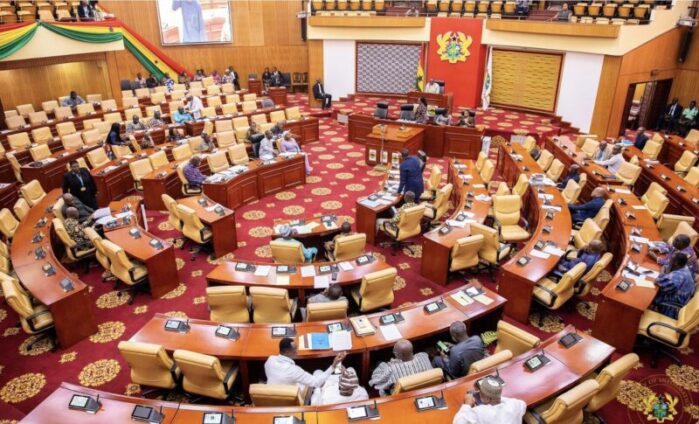Parliament has gone into a closed-door session to deliberate on emoluments for Article 71 officeholders, specifically the executive and the judiciary.
The decision is part of a long-standing constitutional arrangement governing salaries, allowances, and benefits for specific public office holders under Ghana’s 1992 Constitution.
Under Article 71, public officers in these categories are paid their salaries in arrears, based on prior approvals from a similar committee. For the four years they serve in office, their salaries are pegged at the previously approved rates and finalized at the end of their tenure, with any balance paid accordingly.
Additionally, these officeholders receive ex gratia payments at the conclusion of their service, determined by a specific formula. The responsibility for approving these benefits is shared between Parliament and the executive.
Parliament approves the emoluments for members of the executive and the judiciary. The executive, in turn, approves the benefits for Members of Parliament (MPs), the Speaker, and Deputy Speakers.
This reciprocal arrangement has often been criticized as a “scratch my back, I scratch your back” system, with both arms of government favouring each other.
Article 71 outlines the framework for determining salaries, allowances, and benefits for key officeholders, including the President, the Vice President, the Speaker of Parliament, Deputy Speakers, and MPs.
Others are the Chief Justice and Justices of the Superior Courts, the Auditor-General and other independent constitutional officers as well as Ministers, Deputy Ministers, and members of the Council of State.
Determination of these emoluments is based on recommendations from a committee appointed by the President in consultation with the Council of State.
The Constitution also provides for retirement benefits for Article 71 officeholders.
Article 98 provides that MPs shall receive salaries and allowances as determined under Article 71.
Article 114 also provides that MPs who have served for at least four years are entitled to gratuity payments upon leaving office or upon their death.
The arrangement has sparked debates over the years over its fairness and transparency.
Critics argue that the mutually beneficial approvals lack accountability, especially when contrasted with the limited benefits provided to ordinary public sector workers and the nation’s economic challenges.
Calls for constitutional reforms to review the emolument system and align it with the country’s fiscal realities have grown louder in recent years. However, the political will to amend this entrenched provision remains uncertain.
Incoming President John Mahama has promised to scrap the Article 71 ex gratia arrangement.
Read Also: NDC will scrap payment of ex gratia – Mahama
Latest Stories
-
Fire guts Kwadaso Wood market in Kumasi
2 hours -
GPL 2024/25: Gold Stars revive title hopes with win over Berekum Chelsea
2 hours -
We won’t entertain arrogant appointees – Deputy NDC Youth organizer warns
4 hours -
Akufo-Addo’s Aide-De-Camp in good shape after collapsing in Parliament
4 hours -
NPP notifies Parliament of its selected leaders for the 9th parliament
4 hours -
Dumelo loses father days before his swearing in as MP
6 hours -
NPP’s Mandamus Application: This is how the High Court ruled on 4 disputed constituencies
6 hours -
‘Forty Weeks and More’ premieres Jan. 18 on Joy Prime
6 hours -
GHANET urges caution against HIV during the new year festivities
6 hours -
High Court in Accra orders EC to re-collate results for Techiman South
7 hours -
NDC files notice of appeal after High Court ordered completion of results collation in 4 constituencies
7 hours -
2024 Election: South Tongu MP-elect gave Mahama the highest percentage of votes
8 hours -
Daily Insights for CEOs: Mastering time management as a CEO
8 hours -
Kantamanto Market fire: Strengthen investigations or expect more fire – Dwamena-Aboagye
8 hours -
Belgian Foreign Minister to lead EU delegation to John Mahama’s inauguration
8 hours

